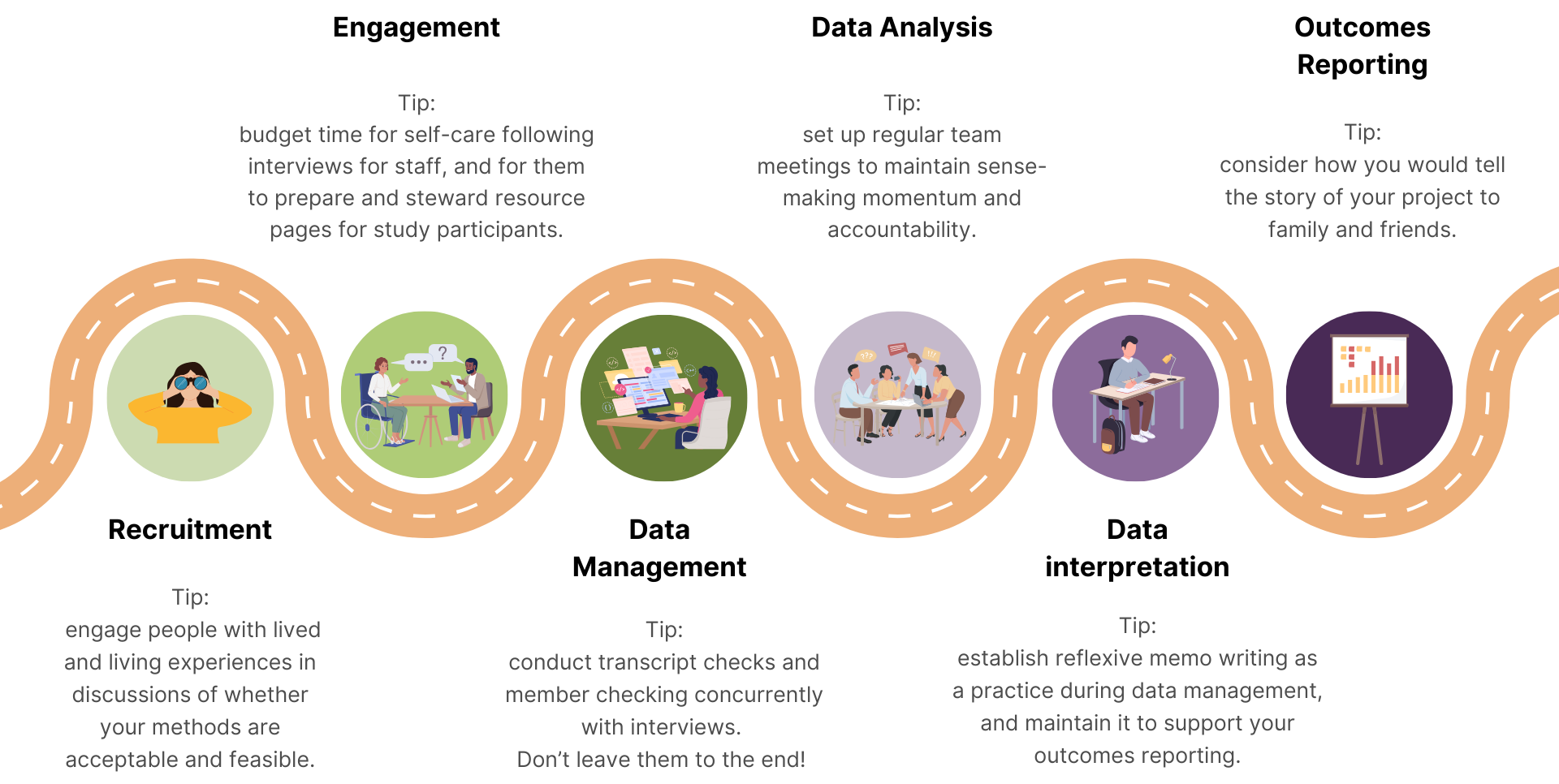
With our upcoming WHRI Catalyst Grant and CIHR Fall Project Grant competitions just around the corner, it is a good time to think about resourcing for success.
Budgeting for qualitative activities is not comparable to budgeting for quantitative activities. From planning, to undertaking, and reporting your research, the inter-personal nature of qualitative processes can result in unforeseen and time-intensive needs. The WHRI’s in-house Qualitative Specialist, Julia Santana Parrilla, has put together some recommendations to consider when developing your qualitative research proposal.

Recruitment
Interviews—be they 1-on-1 or group—are a commitment. They require time and vulnerability, and it can be challenging to find the people willing to commit to both. Even when you’re recruiting from your quantitative sample! As such, it is worth budgeting time for more than one attempt at recruitment.
You may have to iterate on how you invite people to participate. Are you using suitable channels? Are you using affirming language?
You may have to reassess whether what you are asking for is too much. Do people have the capacity for a 1-hour interview? Are people going to want to talk about their experiences 1-on-1 or in a group?
Engagement
Given how interviews engage people in conversations about their experiences, it is worth doing what we can to provide them support in doing so. Whether the research topic is considered high or low risk, consider having a resource page to share with participants prior to and after engagement. This will take some time to curate.
Length of interviews varies. Consider how much time the set-up, facilitation, and wrap-up may take. This includes reminder emails, consent procedures, interview facilitation, and follow-up actions.
Data management
Once interviews are completed, transcription and transcript checking will be undertaken. Regardless of the service used for transcription (e.g. transcriptionist; Zoom), checking is necessary to ensure that the transcripts represent what the participants shared as true to how they said it as possible. Transcripts are foundational to analysis. Their integrity is critical!
Transcript checking takes time; budget for 3 times the length of the interview.
Member checking is also advised. This gives participants the opportunity to ensure that their contributions accurately represent their experiences. They may want to redact, add, or edit transcript content. Some might not care to review their transcript at all. Consider the time it takes to reach a person, have them review the transcript, and have to integrate their feedback.
Data analysis
Analysis requires reading multiple transcripts over and over. Regardless of whether you choose to conduct deductive or inductive analysis, this takes time.
The time will vary based on: (1) number of transcripts; (2) length of transcripts; (3) number of team members; (4) approach to analysis.
In general, you will have to read the transcripts at least 3 times. This will account for coding, categorizing, and thematizing data (e.g., 3 iterations). During and throughout these phases, your team will have to meet and agree on sense-making. This is called inter-coder consensus and is a significant determinant of results’ trustworthiness.
Your team will have to agree on codes and create a codebook, then discuss how the codes do/do not relate to one another to agree on categories, and then agree on and define themes. This takes a considerable amount of time—the most!
Outcomes reporting
The reporting of analytical outcomes is the final level of analysis. This takes more time than anticipated as it requires careful consideration to arrive at a “story” that:
- weaves together observations;
- does not depart significantly from what participants shared;
- makes sense to people who have not been steeped in the data.
Key take-away
Qualitative activities will always take more time than you think. The considerations above are a few to account for in your proposals. The time is takes will also depend on:
- your team and their capacity on conduct this work
- Additional consideration: un/predictable time-off
- your population/s of interest and their willingness to commit to your ask
- competing priorities and responding to emergent concerns
Questions?
Contact Julia Santana Parrilla, our Qualitative Methods Specialist.